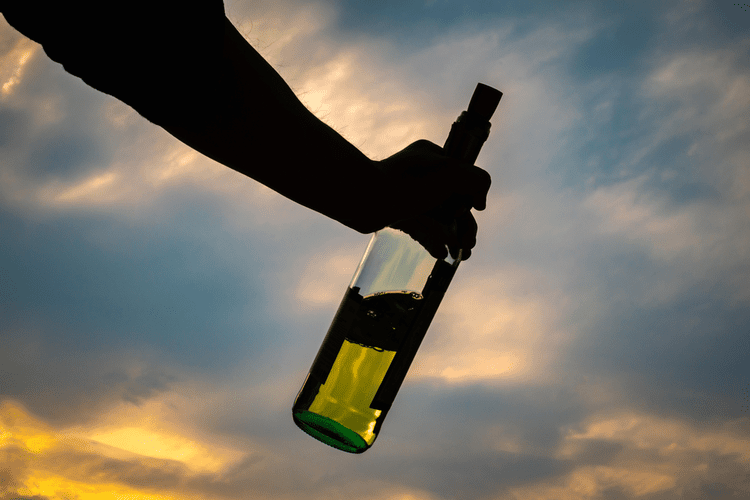Recovery faces you with the challenge of processing a rush of emotions without the previous coping mechanism. This challenge may increase your loneliness as you feel nobody else understands your feelings’ intensity and complexity. Therapy plays a vital role in combating loneliness by addressing negative thought patterns and promoting healthier social behaviors. Substance use may be part of your story, but it doesn’t have to be the rest of it. Sustainable recovery is possible and the best version of yourself is waiting at our Atlanta and Savannah, Georgia addiction recovery centers.

How to Build a Life of Meaning Beyond Addiction
It means that you won’t let your emotions control your behavior. The goal of emotional sobriety is not to become “perfect”-it’s about presence, patience, and practice. Rather sobriety is lonely than suppressing feelings of anger, sadness, shame, or fear, try acknowledging what you’re feeling without judgment. This is the foundation of emotional awareness—it helps you pause before reacting, and invites curiosity rather than self-criticism. Wilson argued that unresolved emotions, resentment, self-pity, fear, could threaten recovery just as much as alcohol. Emotional sobriety, as he described it, was about developing maturity, humility, and the ability to live life without trying to control everything and everyone around you.
How to Handle Loneliness in Recovery
These emotions can create a void you might have tried to fill with substances, leading to a cycle of self-destructive behavior. It forces us to address the emotional challenges that may have contributed to our addiction in the first place. The term “emotional sobriety” is often attributed to Bill Wilson, one of the founders of Alcoholics Anonymous (AA). Without this skill, staying sober becomes extremely difficult. Quitting alcohol is one of the hardest, most confusing experiences, but it’s also one of the most rewarding decisions you can make for yourself.
Repair and foster connections with non-addicted friends and family
- Taking small steps, such as engaging in casual conversations or joining local events and online communities, can lead to new connections.
- At Arista Recovery, we’re here to help you continue with best-in-class care designed for long-term healing and support.
- Our staff members understand what it’s like to struggle in recovery because we’ve been there too.
It creates the necessary space between https://www.tt-global.com.tr/2024/01/26/addiction-recovery-program-and-transitional/ a trigger and a reaction, a moment to pause, breathe, and choose differently. This philosophy remains deeply resonant in the AA community today. You can also ask your friends and family to check in on you regularly for emotional support and comfort. Doing so can build up your motivation to stay consistent with your recovery. It can help to meet new people through alcohol-free activities such as hobby groups, sports teams, volunteer groups, and community events.
I Think I’m Going Through Marijuana Withdrawal
That being said, you might not be at a place where you want people to know you’re not drinking, and that’s OK. You can provide an excuse, like that you’re on antibiotics, or you aren’t feeling great or want to feel fresh for something you have going on the next day. It’s important to remember that you never have to give yourself up to make other people comfortable—ever.

Be Honest With Loved Ones
- Most people in early sobriety experience loneliness because their life is changing faster than their social circle is.
- It’s not uncommon to feel lonely during early sobriety or even years into sobriety.
- Addressing loneliness without involving alcohol is the best way to break this cycle.
- Mindfulness and meditation aren’t just buzzwords—they’re transformative practices that can ease feelings of loneliness and reconnect you with yourself.
If you feel you need support to begin this new chapter of your life, talking with a therapist can be a great way to start. For instance, some people with alcohol use disorder might push away friends and alcohol rehab family and quit participating in activities and events. They might also have financial or legal difficulties that feel overwhelming and add to the feeling of being alone.
- After you get sober, it takes time and effort to restore broken relationships.
- Identifying triggers that lead to feelings of loneliness is crucial in recovery.
- Having something to care for can fill the emotional void, ease anxiety, and bring a deep sense of joy and purpose.

Video calls, messaging apps, and online events help individuals maintain relationships with friends, family, and peers regardless of geographic barriers. Utilizing these tools can prevent feelings of isolation, promote continuous social engagement, and foster a sense of community during recovery. Addiction and loneliness are closely linked; each can drive the other in a cyclical relationship.
